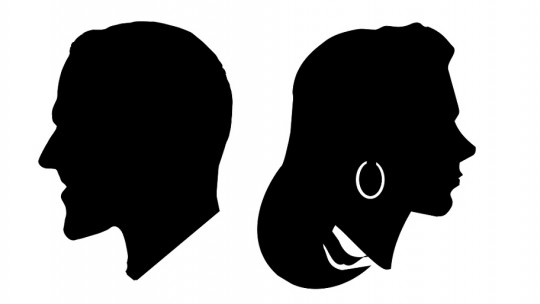
One of the worst experiences that human beings can go through is breaking up with a partner and the person we have loved so much. Especially in the case of a divorce, this situation can cause negative consequences on a psychological, family and economic level.
Divorce is a time of great suffering which, in some cases, may require psychological help. Especially when there are disputes over the custody of children or material assets. Although in a heartbreak and a breakup with a partner the person goes through a phase of grief, relapses are frequent in situations in which one comes into conflict with his or her ex-husband or ex-wife.
It’s not easy to get over a divorce
Accepting a divorce is not an easy task, because we have had good times with our ex-spouse, there is great social pressure for being married and it is a hard blow to a person’s self-esteem. The emotional torrent leaves no one indifferent and the emotions that can arise in this situation are so intense that we can be surprised at how two people who have loved each other can treat each other in a divorce process.
Although we may think that the person who decides to end the relationship is the one who suffers the least, adapting to the new situation as singles is not easy, and it is more complicated when there has been, for example, infidelity involved.
The process of accepting the breakup
And of course, when we reach the point of leaving everything we have experienced behind, there are many memories that hit our minds again and again. Certainly, It is not easy to accept that the situation has come to an end, that the other person will rebuild their life without us and everything we experienced will be left behind never to return.
But sometimes, this situation is inevitable, and then going through the phases of divorce correctly is the best way to find stability again. We must do our part and let time take its course if we want to adapt again to the changing situation.

Over time, divorce can be overcome, but that does not mean that there is no suffering during the process. In fact, the neural circuits involved in love and heartbreak are the same as in drug use, which It can cause very intense emotions, relapses that increase the feeling of failure and greater conflicts with the ex-partner.
So, with time and if we overcome each of these phases of divorce appropriately Without stagnating in them, the neuronal circuits weaken and the neurochemicals that we talk about in our article “the chemistry of love” stabilize. The body then adapts to the change and it is possible to return to normal.
Phases of divorce: the evolution of emotions
There are people who have serious difficulties overcoming divorce, since low self-esteem, poor social skills and other reasons can make recovery more complicated. In these cases, divorce therapy is highly effective.
For a complete recovery, It is important to know the phases of divorce and overcome them In this way we will know what to expect from this process of psychological transformation which consists, fundamentally, of adapting to a daily life in which that person is not with us (or at least, not in the same way) and we also have to get rid of the future plans together and start making our own plans for what to do in life in the long term. This helps speed up the process and avoid falling into harmful emotional management habits. But what are these stages of divorce grief? Let’s see it.
1. Denial and isolation phase
Accepting divorce right away is not easy and, in fact, it is common to deny reality and make attempts to recover what was there. It is a not very long stage, in which the person usually acts in this way as a form of protection.
And it is that no one likes to feel rejected, and the pain of the breakup of a marriage is so great that it is difficult to reason. At this time it is important for the person to understand her emotions and be aware of what has happened in her marital relationship. It is necessary to be objective to obtain a more realistic view of what is happening.
2. Anger phase
Once the person stops denying what is happening, they may feel immense anger and intense anger that is projected towards the other person or towards oneself. If in the previous phase they did not want to see what was happening, now frustration can take over the person for the events that have taken place and they tend to blame the other person for what has happened. Resentment and revenge are common in this phase, so it is necessary to be aware that this feeling of hatred is part of this stage and will disappear over time.
3. Negotiation phase
The negotiation phase can also be complicated if not managed appropriately, because the person is trying to understand the reasons for the separation and may try to understand the ex-partner. In this sense, can lead to a rapprochement in which she tries to recover what was between the two If things are not done well, the situation can get worse.
4. Depression phase
Sadness takes over the person because begins to realize that recovering the relationship is no longer possible and he has to leave behind the person he has loved so much. Reason begins to dominate over emotions and the individual begins to be objective and realistic. Grief overcomes you for losing someone so special to him or her.
5. Acceptance phase
Over time, the individual has become accustomed to the loss and has reflected on what the past relationship was like. Now you can look to the future with optimism again by accepting that everything is over and that what could not be will not be. She no longer seeks to be with the other person and she feels good about herself. She is ready to meet new people.








